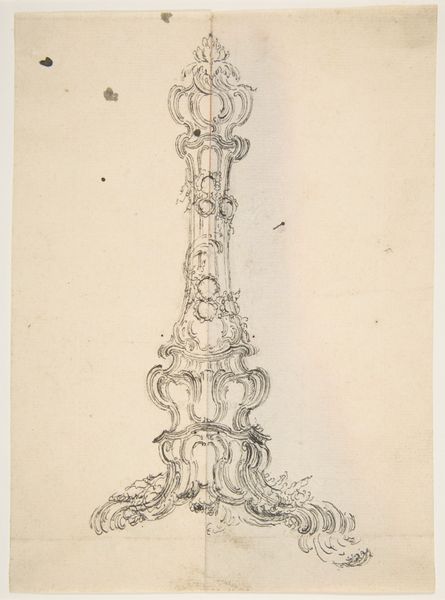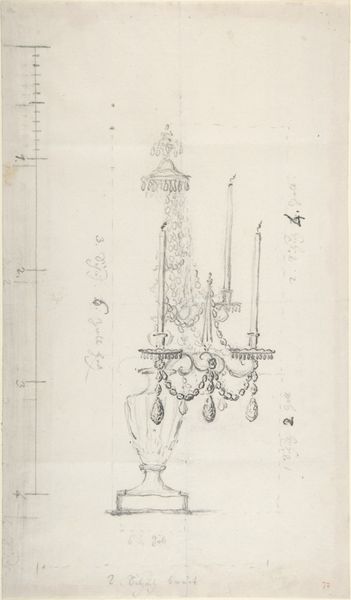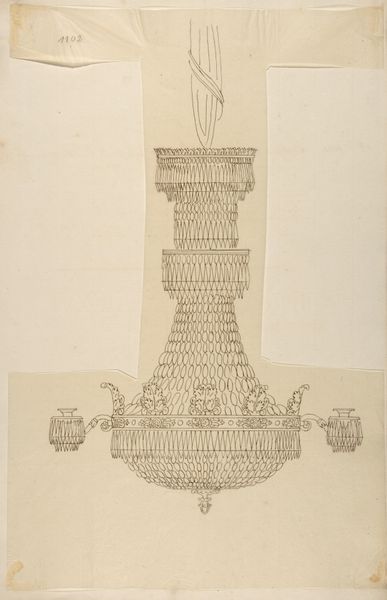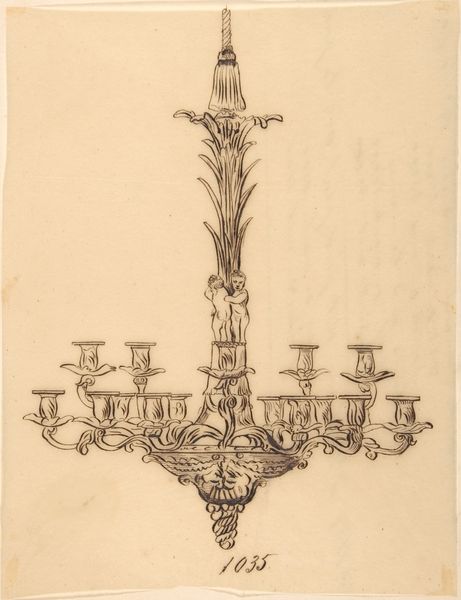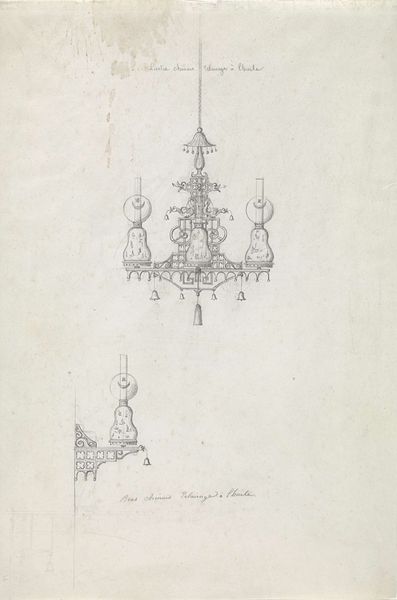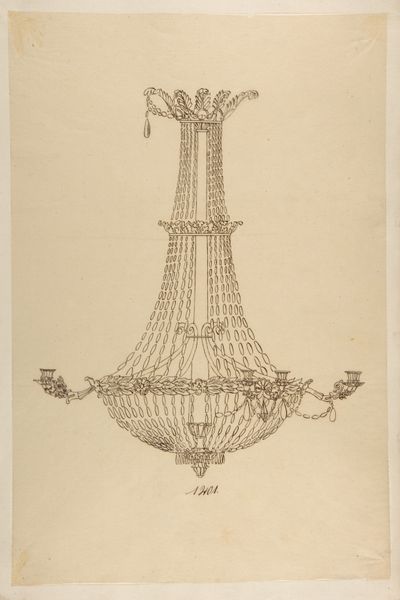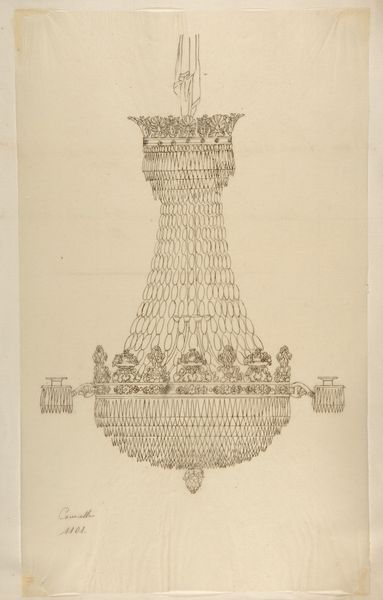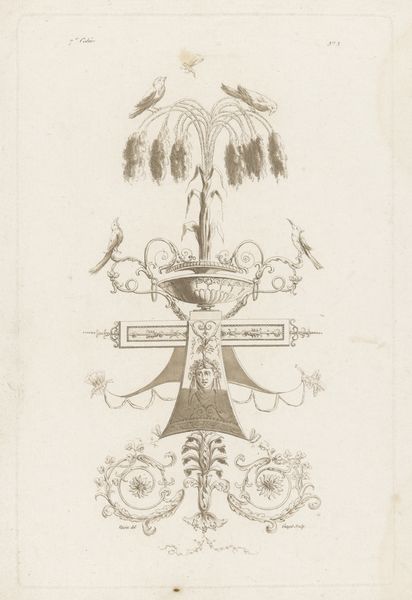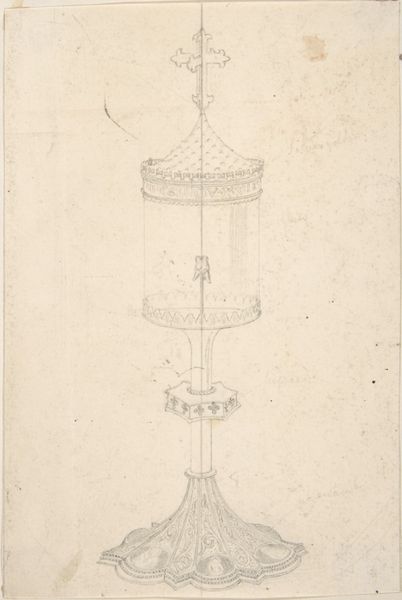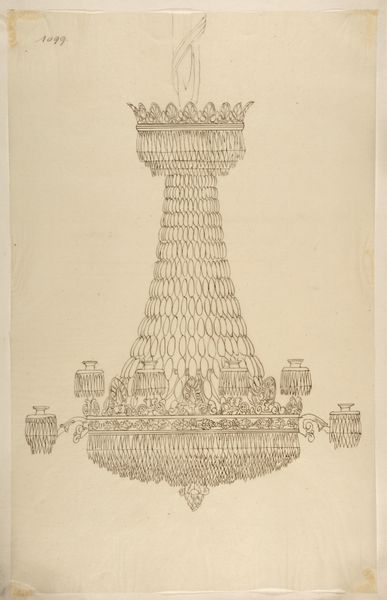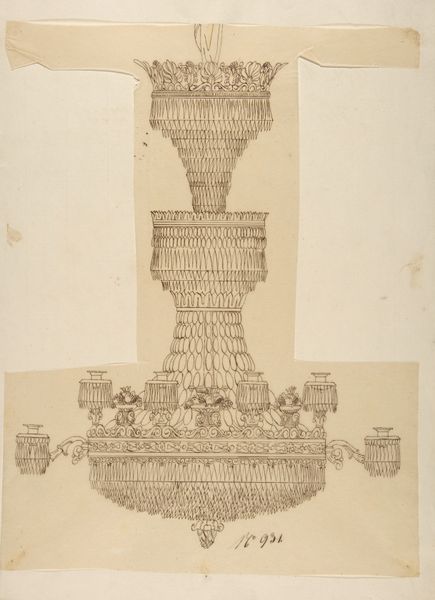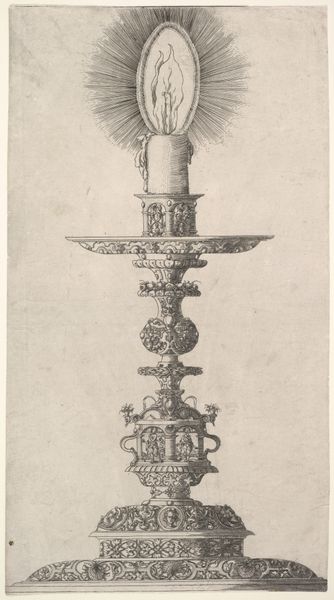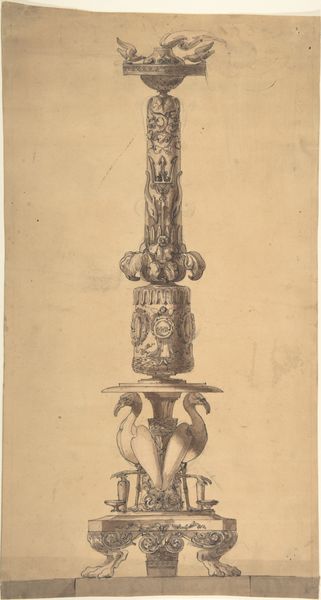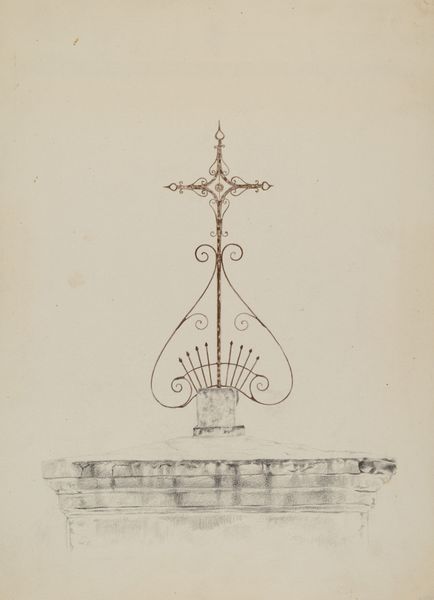
Reliquary of Ss. Sylvan and Florian, from St. Mark's Venice 1850 - 1900
0:00
0:00
drawing, print, pencil
#
drawing
#
medieval
# print
#
pencil sketch
#
geometric
#
pencil
#
history-painting
Dimensions: sheet: 14 1/8 x 9 11/16 in. (35.8 x 24.6 cm)
Copyright: Public Domain
Editor: Here we have a pencil drawing, "Reliquary of Ss. Sylvan and Florian, from St. Mark's Venice," dating from 1850 to 1900. The precision of the line work is striking; there’s an intense focus on geometry and symmetry. How do you interpret the composition, given its medium? Curator: Indeed. The drawing's meticulousness—notice the layered articulation of forms achieved through delicate gradations of tone—hints at the structural and geometric concerns valued during its time. What’s fascinating is that, through purely formal means like line and shadow, the artist creates an implied three-dimensionality, defying the two-dimensional plane. Editor: It's like the pencil tries to mimic the qualities of metal or glass through these carefully placed lines. Curator: Precisely. The materiality, suggested only through technique, takes on a significance independent of any external subject matter. Note the repeating verticality of the reliquary mirrored on the page edges to amplify the impression. Consider how it divides and structures space itself. What kind of relationships are formed with each visual plane? Editor: That adds another layer; it moves past just a rendering and plays with abstract arrangements too. Curator: It offers a compelling study of pure form. Through such formal analysis, one can appreciate the drawing as a testament to the intrinsic qualities of art rather than its representational value. Editor: This approach really highlights how much an artist can communicate through purely structural and material decisions. Curator: Precisely, and I hope you carry this focus on composition with you in future analyses.
Comments
No comments
Be the first to comment and join the conversation on the ultimate creative platform.
